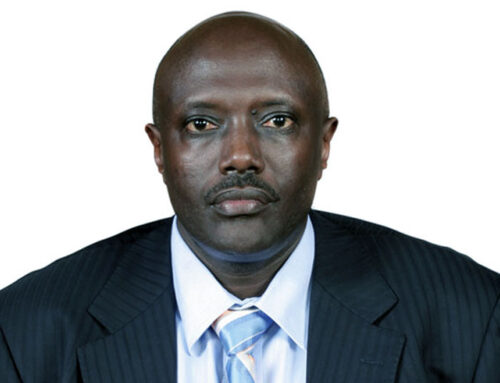
The Minister of Foreign Affairs, Hon. Sam Kutesa explains that the primary purpose of Uganda’s foreign policy is the protection of its national interests in the international arena. In this regard, the national interests are defined as being anchored on three pillars, namely; national security, national prosperity and national well-being. He notes that the national foreign policy vision of Uganda is to realise a conducive regional and international environment that promotes a secure, peaceful and prosperous Uganda in which the peoples’ interests are at the centre.
Working hand-in-hand with other government departments, the ministry represents Uganda in negotiations with international donor and trade partners and agencies; disseminates information about trade, investment and tourism opportunities in Uganda through its foreign missions and embassies; and helps to identify new markets for Ugandan products and increase market access for domestic producers.
Maintaining regional peace and security
Through its commitment to maintaining regional peace and security, the Ministry of Foreign Affairs participates in a number of important projects, including the Tripartite and Permanent Joint commissions, which serve as a forum for enhancing cooperation among Burundi, Rwanda, Uganda and the Democratic Republic of Congo concerning security threats. The ministry also chaired the Regional Initiative for Peace in Burundi, which led to the signing of the Arusha Peace and Reconciliation Agreement.
Through the Inter-Governmental Authority on Development (IGAD), the ministry participated in the Sudan Comprehensive Peace Agreement and the Peace and Reconciliation Agreement in Somalia. In this role the ministry also addressed issues of terrorism, proliferation of tribal militias, the flow of small arms and organised crime, and the fight against HIV and AIDS. Uganda has played, and continues to play, a leading role in efforts to stabilise Somalia by providing troops for the African Mission (AMISOM) under the auspices of the African Union. In Sudan, the ministry has helped to establish scholarships and technical assistance in capacity-building in the aviation, agro-processing and textiles sectors. The ministry also participated in preparing the 2007 Bilateral Cooperation Agreement with the government of Southern Sudan. As the current Chairman of the International Conference on the Great Lakes region, Uganda is also at the forefront of stabilisation efforts in eastern DRC. Uganda has hosted three extraordinary summits to end the hostiles and find a lasting solution to the conflict in the DRC.
The Ministry of Foreign Affairs supports regional integration efforts by working closely with the Ministry of the East African Community to advance Uganda’s strategic interests in the region. In Kenya, the ministry participated in mediatory efforts during a post-electoral crisis, which resulted in the peaceful resolution of the conflict that had threatened East Africa’s largest economy and Uganda’s biggest trading partner. Uganda also hosted the African Union Summit in 2010. The Minister describes this as the doctrine of regionally-lead peace and security, supported by the African Union and the international community.
The Ministry of Foreign Affairs is active in partnerships with countries outside Africa in the Asia-Pacific region, Europe, the Middle East and the Americas. In Europe, for example, it maintains missions in Berlin, Brussels (Uganda’s Permanent Mission to the EU), Copenhagen, Geneva, London, Paris and Rome as well as a mission in Moscow.
“We gear our international activities towards fostering a supportive environment for trade, tourism, technology-transfer and foreign investment,” explains Henry Oryem Okello, State Minister for Foreign Affairs.
The ministry oversees Uganda’s Diaspora interests and consular services around the world. It also handles state visits and other special events.
Improving Uganda’s international image
A key task for the Ministry of Foreign Affairs is to help improve Uganda’s international image. After years of war and violence, Uganda returned to a stable political regime over 20 years ago, although many people around the world are not aware of these positive changes.
Uganda’s leaders want people all over the globe to understand that the new Uganda is a peaceful, business-friendly, politically and economically stable nation with significant growth potential and tourism appeal. As Henry Oryem Okello points out, “Uganda is a beautiful country with a lot of investment opportunities. The country’s image was damaged by the recently released ‘Invisible Children’ video which portrayed Uganda very inaccurately. You have to understand that this video concerned the conflict in northern Uganda which ended almost nine years ago. Today, there is no lack of security in Uganda and it is a safe and wonderful place.”
The Ministry of Foreign Affairs is doing its part to communicate to people worldwide the facts about today’s Uganda. “One of our major challenges, in fact, is to let everyone know that this is a democratic country with enormous potential. There is a great lack of knowledge about Uganda internationally. Some people still think of the country as being under the rule of the late dictator Idi Amin, yet he was ousted almost 30 years ago,” Henry Oryem Okello says. He adds, “Uganda is a beautiful country as well as one of the most prosperous nations in the region.”




